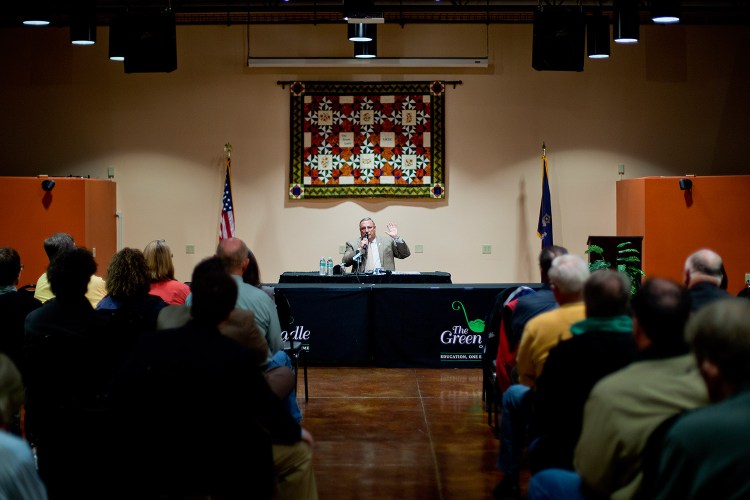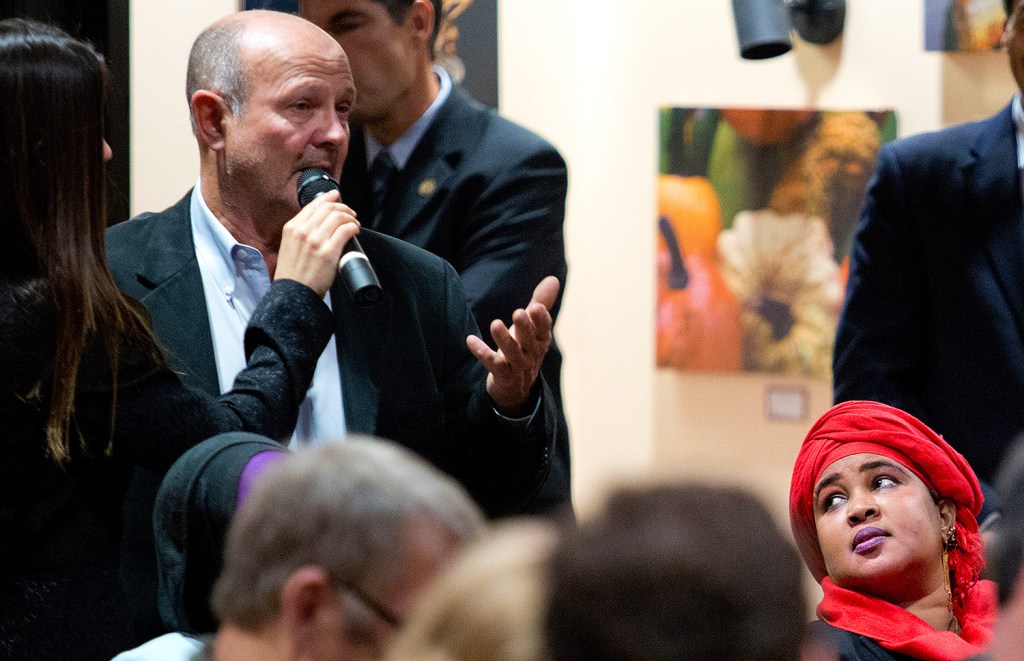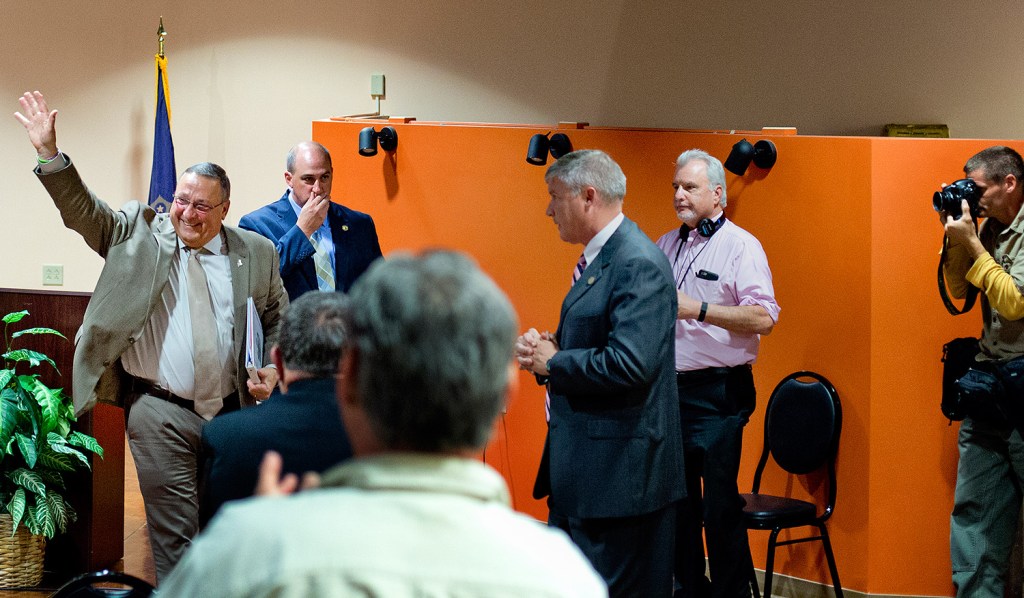LEWISTON — Gov. Paul LePage faced a friendly crowd Tuesday evening at a town hall meeting in his hometown of Lewiston, where about 50 people turned out for the latest in the series of events he is holding across Maine to discuss his efforts to lower the state income tax, reform welfare and reduce energy costs.
In opening, LePage informed the crowd he was there to discuss issues “imperative” to Maine’s future, and not to talk about politics.
“I could care less about people’s ideology, whether you agree or disagree,” he said. “What I’m here for is to tell you where we stand in relation to other states in America.”
Before delving into his favorite talking points, LePage addressed Maine’s demographic challenge, specifically that more people die in Maine each year than are born.
“Ultimately, if we don’t change it we’re going to become extinct. That’s a simple fact of life. What we need to do to lower the (state’s median) age and compete with states like Utah … we have to have young people who make babies, healthy babies,” he said, causing a laugh from the crowd. “Many of you know that concept.”
After advocating for the elimination of Maine’s income tax, a longtime theme of his administration, LePage went on to discuss welfare reform, a critical issue in Lewiston, which has a high number of people on public assistance programs and a mayor seeking reelection who has seized on the issue as part of his platform. Lewiston Mayor Robert Macdonald proposed last month to create a statewide online registry of welfare recipients, though the effort lost steam after he couldn’t find a legislator to sponsor the bill.
LePage used the opportunity to counter what he said is an incorrect image being painted of him as an enemy of the poor.
“I care for the poor,” he said. “I am the one willing to work with the poor, and have a safety net we can all depend on and make people understand that nothing in life is free. You have to get back to society.”
At another point during the meeting, he said the problem wasn’t lack of jobs, it was that the people looking for work lack the skills needed in the jobs that are available.
“We need to put more money, more effort into training people,” he said.
The questions from the audience ranged from school reform to gun control. The governor’s staff screened the questions, though that was to avoid repeats and not for “nefarious” reasons, said Peter Steele, LePage’s communications director.
Asked about his stance on gun control. LePage said he believes in constitutional carry laws and doesn’t support the existence of gun-free zones.
“I have a sign on my desk: ‘You can’t fix stupid and you can’t legislate intelligence. Having said that I think it’s stupid to put a sign on the wall that says ‘gun-free zone’ … a gun-free zone is inviting people to do bad things.”
He said the government should be more attentive to who buys guns, and cited mental illness as a key factor in many of the mass shootings that have plagued the country in recent years.
“There’s always some factors there that say that person probably should not have had a gun,” he said.
In a response to a question about Maine’s education system, LePage said the state’s higher education institutions are on the right track. He praised the Maine Community College System and Maine Maritime Academy, but he was less generous regarding the K-12 system.
“Until the Maine people and the parents and grandparents demand progress under the school system, you’ve got what you’ve got. Nothing will change until you demand it, because the union controls us,” he said.
He said there are winners and losers in Maine’s K-12 education system, and that while the education union leadership is winning, it’s the teachers and students who are losing out.
LePage addressed the debate over the minimum wage, as well. He said raising the minimum wage to $15 an hour, as is being debated in Portland, would “devastate the Maine economy,” he said. He predicted that raising the minimum wage would put more young people out of work, as well as force Maine residents on fixed incomes to go back to work.
“The elderly will be asked to work part time,” he said. “They’ll have to come out of retirement to work 20 hours a week.” One audience member asked where LePage stood on the Question 1 that will appear on the November ballot, which would increase funding for Maine’s Clean Elections Fund and increase penalties for violating campaign finance disclosure rules.
LePage said he was opposed to the proposed law change.
“It’s poorly written, but brilliantly written by those who want it to pass,” he said. “It’s really the biggest scam since I’ve been governor.”
One member of the audience praised LePage for the work he’d done, then asked why he chooses to take the abuse he does from critics and the media.
LePage used the question to end the town hall meeting and reiterate how he feels about Maine.
“Why do I take a beating? Simple,” he said. “I was born, raised, and schooled in Maine. I love it. I love this state. I love the people in this state. I want my children and grandchildren to live in this state.”
Send questions/comments to the editors.





Success. Please wait for the page to reload. If the page does not reload within 5 seconds, please refresh the page.
Enter your email and password to access comments.
Hi, to comment on stories you must . This profile is in addition to your subscription and website login.
Already have a commenting profile? .
Invalid username/password.
Please check your email to confirm and complete your registration.
Only subscribers are eligible to post comments. Please subscribe or login first for digital access. Here’s why.
Use the form below to reset your password. When you've submitted your account email, we will send an email with a reset code.